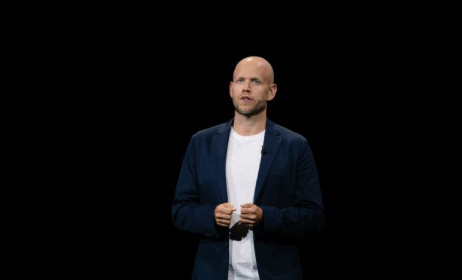Article 13: European Parliament passes controversial copyright rules
The European Parliament has approved new copyright rules for the Internet.
 Axel Voss: New copyright rule "is an important step towards" compensating creators.
Axel Voss: New copyright rule "is an important step towards" compensating creators.
Yesterday, the new rules, including the controversial Article 13, received 348 votes in favour, 274 against and 36 abstentions.
This comes despite intense pressure from online giants like YouTube. The platform claimed that the new rules would limit the creativity of the online population.
By going ahead, the European Parliament has rejected that claim. The reforms, according to the Parliament, will strive to maintain the Internet’s ethos of free information while upholding the rights and obligations of copyright law. The sweeping reforms affect both artists and journalists.
“The directive aims to enhance rights holders’ chances, notably musicians, performers and script authors, creatives as well as news publishers, to negotiate better remuneration deals for the use of their works when these feature on Internet platforms," the European Parliament said. "It does this by making Internet platforms directly liable for content uploaded to their site and by automatically giving the right to news publishers to negotiate deals on behalf of its journalists for news stories used by news aggregators.”
Axel Voss, the member of the European Parliament most synonymous with Article 13, agreed. He said the "directive is an important step towards correcting a situation which has allowed a few companies to earn huge sums of money without properly remunerating the thousands of creatives and journalists whose work they depend on".
Although Wikipedia had joined the protests against Article 13, the Parliament has exempted uploads to online encyclopedias, like Wikipedia, which are done “in a non-commercial way”. While uploading files containing music, films and scripts will be monitored, newer platforms will be less penalised than established ones in the event of infringement.
Upon news of the decision reaching the public, YouTube issued a statement, saying the final wording of the new rules were better than before but had some reservations. "Article 13 could still have unintended consequences that may harm Europe’s creative and digital economy. We urge EU member states to keep these concerns in mind as they move to implement the new rules.”
As expected, the approval has been met with warmth by many, including CISAC president Jean-Michel Jarre. “I am delighted that, after three years of intense deliberation, the European Parliament has voted for a fairer deal for creators in the digital world,” he said.
“This is the 'yes to copyright' that hundreds and thousands of creators have been asking for in order to preserve their livelihoods, and European culture, in the future. I want to say a huge thank you to the European Parliament for listening and understanding creators’ concerns.
“This is a really important decision that has enormous implications worldwide. It recognises that a 21st-century Internet needs a 21st-century level of protection for creators. It confirms that the big tech companies which use creative content must be made to negotiate fairly with the creators who fill their pipes and cables with their works. And it sets up a more just, balanced and responsible partnership between the creative community and the vast and powerful technology goliaths that increasingly dominate our digital world.”
Critics of the new rules have expressed dismay, even as EU countries have two years to make the rules into binding national laws. The Internet, they say, could become more fragmented along geographical lines and increased pressure on digital platforms to ensure copyright purity could lead to censorship of content uploaded by users. Fears concerning the banning of memes have proven unfounded as the final draft of the rules provides an exemption for memes and parodies.



























Commentaires
s'identifier or register to post comments